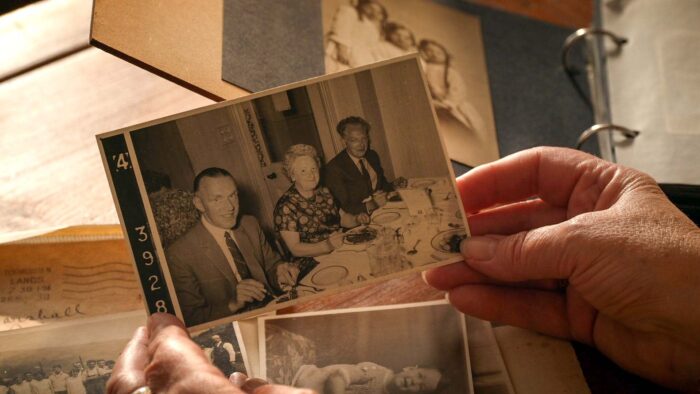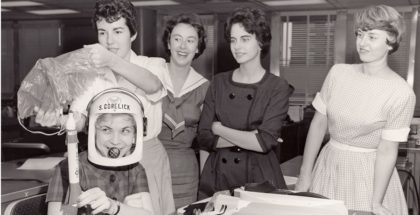True Crime Tuesdays: The Shipman Files: A Very British Crime Story
Review Overview
Repetition
7New information
6Victims’ voices
8Helen Archer | On 27, Oct 2020
On Tuesdays, our resident true crime obsessive gets their fix with a documentary film or series. We call it True Crime Tuesdays.
Last year the BBC screened the outstanding The Yorkshire Ripper Files, in which Liza Williams examined the crimes of Peter Sutcliffe, offering a snapshot of the time, while giving voice to women whose experiences had previously been suppressed and minimised. This new series follows a similar format, looking at Harold Shipman, Britain’s worst serial killer with an estimated 250 victims – most of them rendered individually invisible not only by the sheer scale of the murders, but by the fact that Shipman preyed mainly on the elderly.
Like The Yorkshire Ripper Files, this three-parter seeks to humanise the victims, while also putting the crimes into the context of society as a whole. And, like its predecessor, it is also made by a journalist local to the area – Chris Wilson, who, as a young man, lived in the shadow of the murders. While Williams focussed on the sexism and misogyny of Britain in the 1970s, which allowed Sutcliffe to attack repeatedly while his victims were fobbed off by the authorities, Wilson looks at the ageism inherent in society, which allowed Shipman to operate unchallenged for 27 years. But although Wilson’s thesis – that the deaths didn’t arouse any suspicion because the victims were older, and died “peacefully” at home – is sound, the documentary doesn’t break much in the way of new ground, and can seem repetitive.
Subtitled “A Very British Crime”, the series focusses on the community of Hyde, where Shipman worked as a GP from 1977 until 1998. Known around the area as “Dr Death” due to the number patients who died under his care, people were nonetheless unable to believe that a local, trusted and apparently dedicated GP could be guilty of such crimes. His method of killing was opportunistic and left barely a trace, as he targeted mainly older women who he visited between his morning and evening surgeries, administering them with lethal injections and leaving them to die in their homes. Although many were active and healthy before his visits, their deaths were easy, at the time, to put down to “old age”. Even as a local paper wrote an article about three such cases in one afternoon – all under Shipman’s supervision – official alarm bells didn’t start ringing until he forged the will of his final victim, former Mayoress Kathleen Grundy, which led police to look into other sudden deaths of those in his care.
In the documentary, Wilson speaks not only to ex-patients of Shipman and the families of some of his victims, but to doctors who worked with him, as well as the police who investigated and the journalists who covered the story. He examines the missed opportunities to detect and stop Shipman – from a coroner who highlighted the amount of deaths she oversaw, to a policeman who warned that the General Medical Council were wrong to allow him back to practicing medicine after Shipman’s drug addiction came to light.
Although true crime viewers are used to hearing much from the perpetrator themselves – be it in tape recordings or court documents – here Shipman barely appears, except as described by others. A clip of him being interviewed by police is included, in which he turns his back to the interviewers and closes his eyes, refusing to look when confronted with pictures of his victims. The programme also eschews any kind of psychological analysis of him – which can only, at the stage, be pure guesswork, given that he never spoke of his crimes and committed suicide in prison, four years after being found guilty of the 15 murders he was charged with. While it may leave the modern viewer with something of a gap in the experience, it does seem apt. Shipman is presented in the documentary as he was in life – an unknowable void.
Wilson instead chooses to attempt to restore the identity and character those Shipman murdered, and much that is memorable about the series comes from the testimony of families of the victims, who describe the rich detail of the lives of their parents and relatives. Some are stunned into silence at the extent of their losses; others are still furious about the deception and betrayal they feel towards the man they trusted to take care of their loved ones. While the series isn’t awash with new information, it acts as timely reminder that behind every opaque number and statistic is the story of a full, cherished life, and that every untimely death is a tragedy.
The Shipman Files: A Very British Crime Story is available on BBC iPlayer until September 2021




















